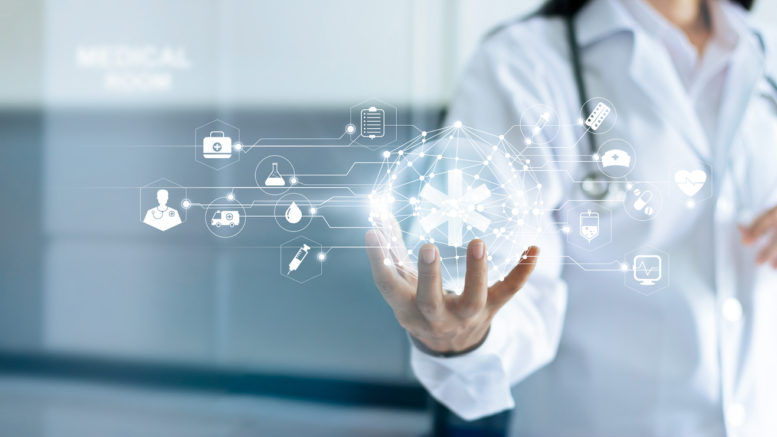Health informatics could be the key to the high-quality healthcare we all want and need. This field involves the collection, analysis and application of all sorts of health data, which could lead to breakthroughs in diagnosis procedures, treatment plants and more, giving everyone greater control over their health and well-being. The more people dedicated to developing health informatics, the better, so if you are any interest in this field, you should consider pursuing an online master’s in health informatics. During your study, you may learn about the following technologies, which have been and will continue to be essential to health informatics:
Electronic Health Records
Healthcare providers first began taking advantage of digital systems for storing patient data in the 1960s, but electronic health records (EHRs) didn’t become widespread until the Affordable Care Act mandated improvements for security and transmission in the early 2010s. Today, almost every healthcare provider utilizes EHRs, as they are more cost-effective and more functional than traditional paper files. With EHRs, providers can more easily coordinate care, ensuring higher-quality services and better outcomes for patients. Additionally, and useful to the field of health informatics, EHRs tend to collect the same types of data across patients, making it easier to collect important data on specific conditions for higher-quality research that can yield insightful results.
Interoperable Health IT Systems
It isn’t particularly useful to have EHRs if the provider who created them has a unique system that does not integrate with other providers’ digital systems. Thus, the next essential technology for effective health informatics is an interoperable IT system, which allows providers across organizational, regional and national boundaries share information and optimize health for individuals and populations. Though not all health systems currently meet this standard, health informatics professionals are actively working with healthcare administrators to improve interoperability for the future.
The Cloud
Healthcare systems generate and manage unimaginable quantities of data. Rather than trying to organize data storage on-site, more and more healthcare providers are turning to the cloud, where storage is much more affordable and much more convenient for health informatics. Through the cloud, informatics professionals can centralize data collection and improve accuracy of capture and reporting, which improves processes for data analysis with the result of faster, higher-quality insights and actionable outcomes.
Telemedicine
Though telemedicine has been growing in popularity for decades, during the pandemic, engagement with telemedicine soared. Today, more providers than ever are able to meet with patients via video conferencing, which is increasing participation in healthcare, especially in rural regions that previously suffered from insufficient healthcare options. As a result, informatics professionals are gaining access to a wealth of new data from populations that have historically lacked healthcare services. The rise of mHealth, or mobile healthcare apps, is also driving engagement trends while improving patient satisfaction.
Wearables
Technologies that individuals can wear to track and improve their health might seem, to many, like items from a science fiction future, but they are in fact already in use today. Many consumers are familiar with fitness trackers that count steps, measure heart rate, track sleep habits and more. More specialized wearable tools might measure heart and brain activity with greater accuracy, track blood-oxygen levels or screen hormones — and they might immediately alert healthcare providers if readings are unexpected or dangerous. The opportunity to track patients’ metrics in their real lives is unprecedented and incredibly powerful, allowing healthcare providers to develop more accurate treatment plans with the aid of informatics professionals’ data analysis tools.
Artificial Intelligence
Artificial intelligence (AI) is revolutionizing so many industries, and healthcare has the potential to benefit dramatically from the application of AI in health informatics. Trained AI tools can analyze huge amounts of data and produce accurate conclusions with much greater speed than individuals or other digital technologies. Already, health informatics professionals and software developers are working to create AI-driven solutions that can aid in diagnostics, helping patients identify health conditions sooner, but AI could also be valuable in the creation of treatment plans, in monitoring follow-up care, in the production of pharmaceuticals and more. Though we are a long way from replacing human healthcare providers entirely, AI tools are likely to become essential in medicine over the coming decades.
Health informatics is a relatively new field, but it is swiftly becoming an important one for the future of healthcare. As these and other technologies become more sophisticated, patients and providers alike can look forward to higher-quality healthcare for all.
